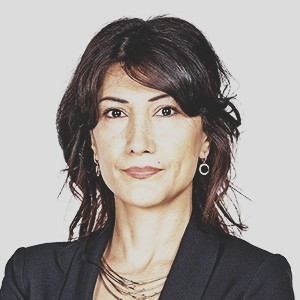
SPEAKER PROFILE |
 Prof. Dr. Oya Tagit Head of the Group Biointerfaces, Swiss Nanoscience Institute (SNI) & Executive Committee Member; University of Applied Sciences and Arts Northwestern Switzerland, School of Life Sciences - Institute of Chemistry and Bioanalytics Switzerland |
Immunomodulatory nanomedicines development: from bench to the bedside
Abstract
Nanoparticle-based drug delivery systems are known to offer a plethora of potential therapeutic benefits. However, challenges related to large-scale manufacturing hinder their clinical and commercial development. In this context, a reliable manufacturing technique suitable for the scale-up production of nanoformulations without altering efficacy and safety profiles is highly needed. This talk will cover the development of an inline sonication process for scale-up production of immunomodulating polymeric nanoparticles for cancer immunotherapy. Formulation characteristics, including encapsulation efficiencies, release profiles and in vitro functional and toxicological profiles will be discussed.
Bio
Prof.Dr. Oya Tagit is the head of the Biointerfaces Group at FHNW and executive committee member of the Swiss Nanoscience Institute. She obtained her PhD at the MESA+ Institute for Nanotechnology, University of Twente, The Netherlands and did research in several countries (Singapore, France, Netherlands, Ireland) prior to moving to Switzerland. Her research aims to address the unmet biomedical needs in the diagnosis, monitoring, and treatment of disease with engineered nanoparticles tailored for the desired biological targets and functions. Her group utilizes an interdisciplinary approach at the interface between materials chemistry, nanotechnology, and biology for bench-to-bedside development of optical and magnetic detection probes, (pre-)clinical imaging agents, and drug delivery systems based on inorganic and polymeric nanoparticles. The diagnostic and therapeutic performance of these nanoparticles are studied in vitro and in vivo using advanced imaging and cell culture techniques and disease models.